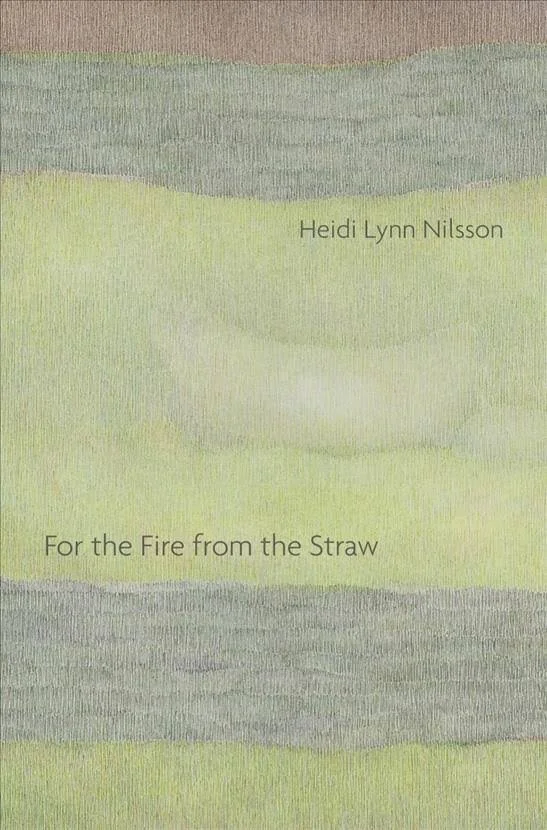REVIEWS
Publishers & authors: if you are interested in having a new book of poetry, fiction, or creative non-fiction reviewed, please send a copy to Reviews, Roanoke Review, Miller Hall, Roanoke College, Salem VA 24153.
Chloe Honum’s 2022 poetry collection, The Lantern Room, is a meditation on how reckoning with loss metamorphoses the language of self-expression. As the speaker’s search for identity and direction evolves, the forms and themes of the poems shift accordingly.
The themes of Heidi Lynn Nilsson's For the Fire from the Straw are large: violence; lust; insanity; guilt; love. To ratchet up the stakes even further, these themes are explored through a relentless testing of the word God, resulting in a collection that is a remarkable blend of faith, intellect, and physicality.
“The first lines drop us immediately into a realm of whimsy and atrocity, a realm in which much of Barger’s collection finds its footing.”
"Fitts’s collection is one of the most ambitious I’ve read, trying as it does to confront and expose big questions and refusing to settle for an easy answer."
"The image of the weaver provides the metaphor for the collection entire, as the poems collected here are less freestanding pieces than they are snatches of visions, ideas worked upon, words posited in one poem to be taken up again in another and explored. Plums, berries, brandy and frozen solid trees appear and reappear rhythmically throughout the collection, often tied to the traditions of life the narrator has by now left behind."
"The triumphs of Pobo’s ekphrastic texts lie less in any consonant relationship between the given poem and the artwork than in the dissonant collisions sparked by the art and extended through the poetry. In the collection’s best moments, it’s as though Pobo’s language leaps out beyond the artwork to another plane altogether—a plane that nevertheless feels as though it was prepared by the artwork itself."
Of the two key paradoxes addressed by this book, the first one is the most relatable, that is: the manner in which these women seek meaning serves to destroy those things that would most provide it. As delivered by Blunschi, that paradox is heartbreaking, exasperating, and all too familiar.
Happy was I then to learn of a new publication from Eliot Weinberger, The Ghosts of Birds, in which Weinberger continues in the vein he nearly pioneered and certainly owns, that of the avant-garde essay. While this book might offer distraction from the tumultuous present, it immerses its reader into a wider scope of time that proves no less convulsive, ecstatic or ultimately mysterious








